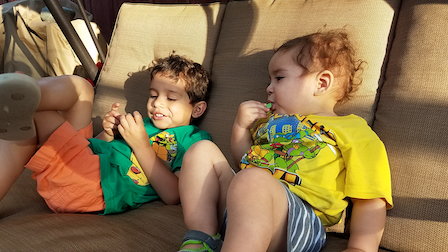ASHA is the professional and scientific association for speech–language pathologists, audiologists, and speech, language, and hearing scientists in the United States and internationally. ASHA’s mission is to promote the interests of and provide the highest quality services for its members and to advocate on behalf of people with communication disorders.
The Division for Early Childhood (DEC) is an organization designed for individuals who work with or on behalf of children with special needs, birth through age eight, and their families. DEC, a subdivision of the Council for Exceptional Children (CEC) is dedicated to promoting policies and practices that support families and enhance the optimal development of children. Children with special needs include those who have disabilities, developmental delays, are gifted/talented, and are at risk of future developmental problems.
The Infant Development Association of California is a multidisciplinary organization of parents and professionals committed to optimal developmental, social and emotional outcomes for infants, birth to three, with a broad range of special needs and their families. IDA advocates for improved, effective prevention and early intervention services, and provides information, education, and training to parents, professionals, decision makers and others.
National Association for Family Child Care (NAFCC). As the profession of family child care changed, so too changed the focus of the NAFCC. The focus of NAFCC is to provide technical assistance to family child care associations. This assistance is provided through developing leadership and professionalism, addressing issues of diversity, and by promoting quality and professionalism through NAFCC’s Family Child Care Accreditation.
The National Association for the Education of Young Children (NAEYC) is the nation’s largest organization of early childhood professionals and others dedicated to improving the quality of early childhood education programs for children birth through age eight. NAEYC’s primary goals are to improve professional practice and working conditions in early childhood education and to build public understanding and support for high quality early childhood programs.
ZERO TO THREE is a national, nonprofit organization dedicated solely to advancing the healthy development of babies and young children. ZERO TO THREE disseminates key developmental information, trains providers, promotes model approaches and standards of practice and works to increase public awareness about the significance of the first three years of life.
 The following links may be of interest as you search the world wide web for information on children with disabilities and other topics related to
The following links may be of interest as you search the world wide web for information on children with disabilities and other topics related to